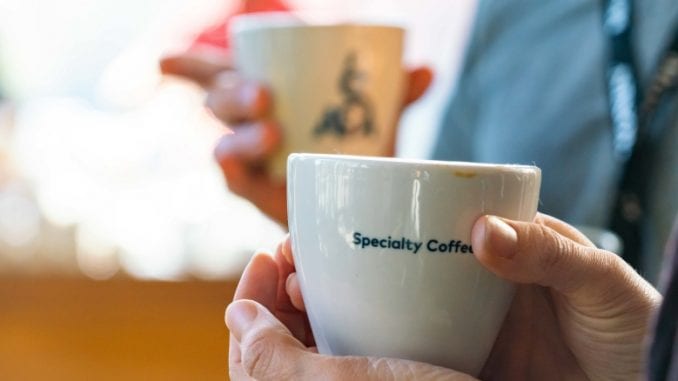
We delve into the wide array of sensory experiences presented at this year’s Sensory Summit.
BY EVER MEISTER
SPECIAL TO BARISTA MAGAZINE
Photos courtesy of the Specialty Coffee Association
If a summit is the highest place at the top of a mountain—the pinnacle achievement for any climber—then it fits that Sensory Summit is not only one of the top annual events for specialty-coffee professionals, but also one of the most challenging.
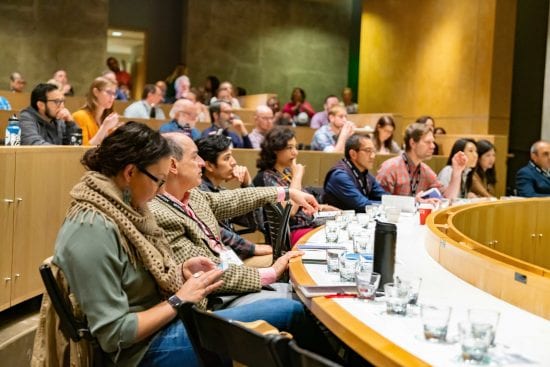
Held for the past four years at the University of California, Davis, the two-and-a-half-day program is a combination of presentations, lectures, tasting exercises, and discussion opportunities focusing on the sensory and sensory-analysis aspects of specialty coffee. While the individual sessions differ from year to year, they often touch on similar or related topics in that broad field of study, including consumer perception, analytical calibration, and cross-industry exploration of standards and flavor development.
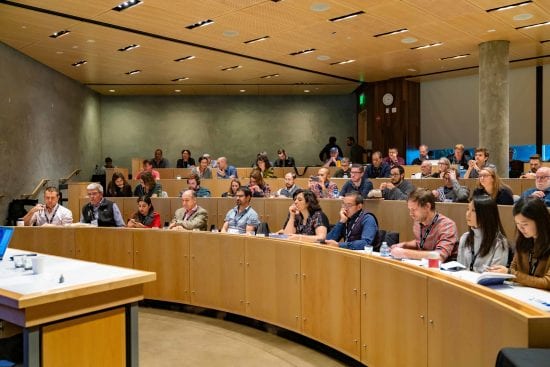
The attendees to Sensory Summit vary: Producers, importers, roasting companies, baristas, and employees of allied-product businesses all come together to sit at the tasting table and learn about the dynamics of taste. While the weekend isn’t cheap to attend, there are discounts available for Coffee Roasters Guild and Specialty Coffee Association members, as well as sponsorship and volunteer opportunities that can help defray costs for smaller or cash-strapped companies.
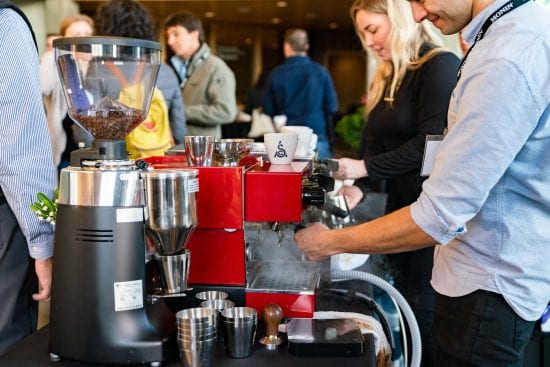
This was my first time attending, and even as I write this on the flight home to Cafe Imports’ HQ in Minneapolis, I find that my mind and my palate are still processing some of what was presented. Since I work for an importing company, some of the topics I was most interested in were the ways that roast-profile development can affect the flavor characteristics of a finished coffee—something I’d naturally theorized about but never seen comprehensive hard data on, let alone tasted comparatively—as well as an exploration of new sensory-standard technology that may potentially assist in quality grading and more consistent, accurate cupping for approval. (In other words, we tasted through 12 different commonly found coffee defects and taints, hopefully so that you don’t have to.)
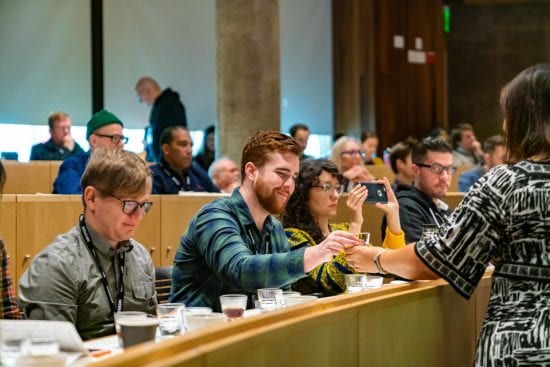
The weekend was also a great way to become acquainted with the coffee research being conducted at UC Davis, and a keen introduction to the future of the Coffee Center there. While work and study is already underway for undergraduate and graduate students, the physical home of the Coffee Center is under renovation and still in need of sponsorship. Attendees heard from students and professors alike, and we were able to explore the findings of their studies in things like extraction science and how to build a better brew chart. That outside scientific cooperation and collaboration is incredibly necessary in our otherwise largely anecdotal industry, and without making an outright plea for sponsorship, the Summit is an effective way to express the tangible benefits of having a dedicated coffee academic program within an institution already famed for its influence and contribution to the wine industry.
Personally, one of the greatest benefits of attending the Summit, aside from making and renewing connections with like-minded peers and colleagues in the industry, is the fact that I’m headed back to my office this week with fresh ideas of how we as a team at Cafe Imports can reimagine sensory analysis and reframe our language to do better and more efficient work. Our sensory-analysis team is constantly working to develop new and improved tools to translate what we taste in our cups to what we share with our customers, and being able to relate back to them what I learned and experienced is significantly valuable.
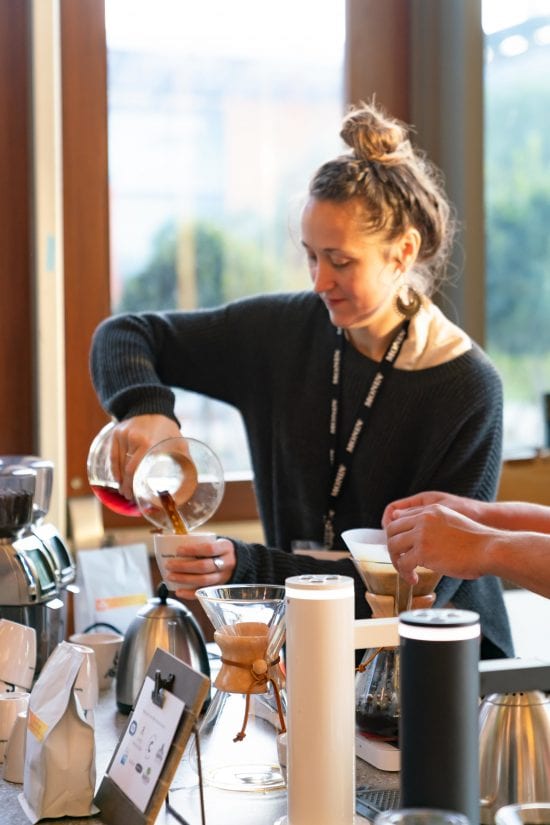
(One open note of feedback to the planners of Sensory Summit, however: This being one of the busiest times of year in sample cup testing and approval, it was nearly impossible for our sensory-analysis department to actually attend the program for themselves. I hope I’m a passable messenger, but if this program is meant to benefit folks like Ian Fretheim and Megan Person on the front lines of sensory evaluation, the timing isn’t great.)
Sensory Summit might be a high mountain to climb—you’ll definitely get plenty of brain exercise along the way—but for anyone who’s professionally interested in and motivated by the science of flavor, standards, and language, it’s a can’t-miss weekend in a lovely place with the most committed, interesting, and congenial group of coffee pros you could ever imagine. 10/10, would attend again.
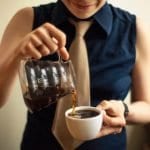
ABOUT THE AUTHOR
Ever Meister (you can call her just Meister) has always led a kind of weird, caffeinated double life. As a coffee professional, she’s been a barista, retail manager, wholesale support representative, and educator; as a journalist, she’s written and/or edited work for The Boston Globe, The Washington Post, Serious Eats, Saveur.com, and Every Day with Rachael Ray magazine, as well as the gem you’re reading right now. These days she can be found selling green coffee for Cafe Imports, riding her bike around the beautiful Twin Cities, and finally (finally!) taking a break from blogging. You can email her at meister@justmeister.com.

